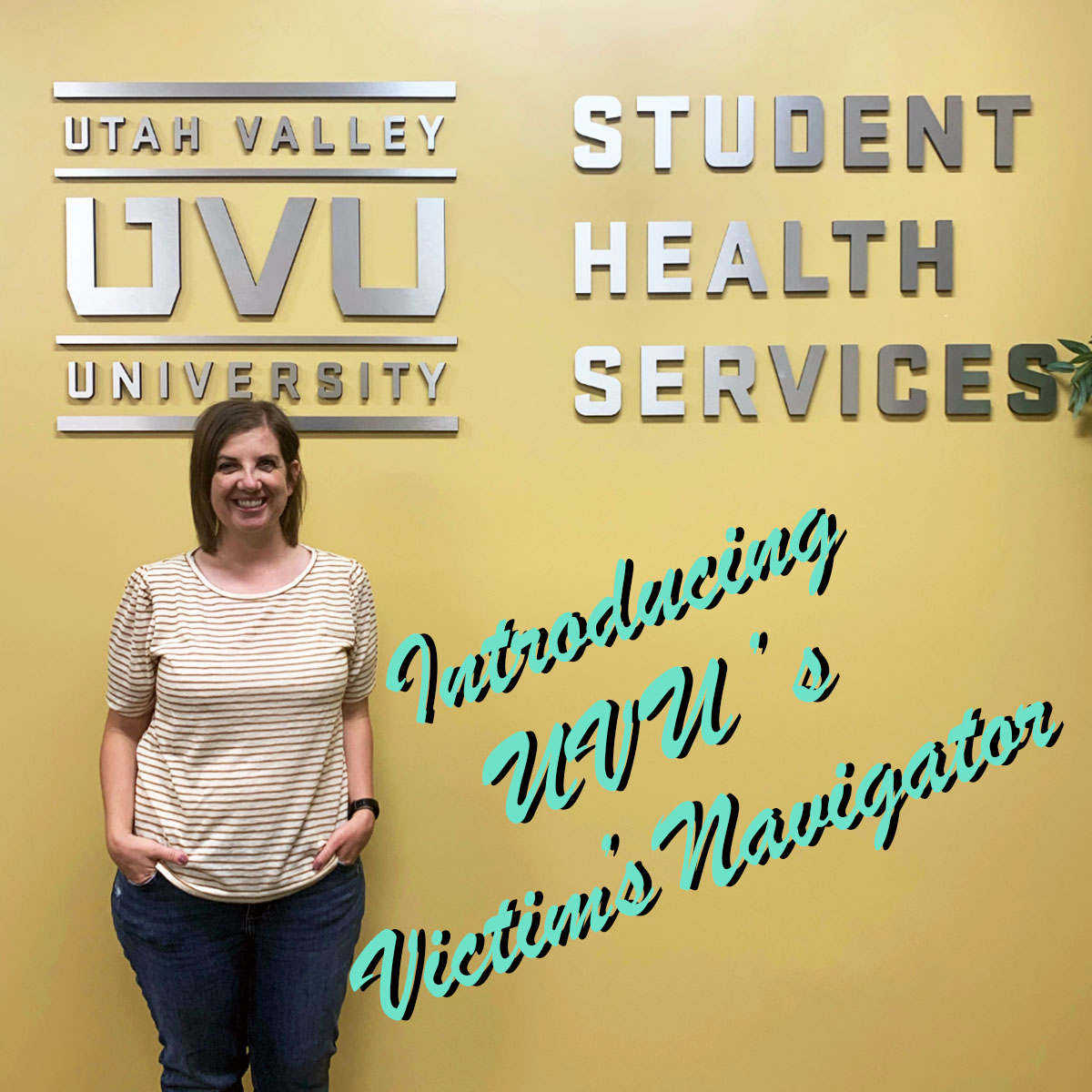

Introducing UVU's Victim's Navigator
By Sariah Collard, LCSW
Published July 14, 2021
(UPDATE: UVU Student Health Services no longer employs a Victim's Navigator. UVU Police employ a Victim Advocate.)
Student Health Services’ (SHS) Outreach Committee started this blog so that we, SHS staff, have an additional platform to reach UVU students. On that note, I would like to introduce myself, and my role at UVU. My name is Sariah Collard; I am the UVU Victim’s Navigator. I wrote an April 2021 blog post about “Start By Believing.” Each blog post I write will speak to resources for survivors of interpersonal violence. I have worked with survivors in various capacities as an intern at USU’s Sexual Assault Anti-Violence Information Office, as the Rape Crisis Team Coordinator, and at The Refuge, as a therapist. I currently work at UVU as a crisis therapist - Victim’s Navigator.
One linguistic caveat I would like to mention concerning this post, and other posts I will write, pertains to how we refer to individuals who have been victimized. Those of us working with survivors of interpersonal violence often use both terms “survivor” and “victim.” We classify what happened as a victimization; however, each human impacted by the event has the right to decide how they identify. I work with people who found strength in identifying as a victim for a time. I work with people who do not want to identify with either and wanted to identify with their name only. I also work with people who prefer to identify as a survivor. I believe it is the choice of the individual. For this blog post I will be using the term “survivor” when speaking about persons, and using the term “victim” when speaking about services.
As a therapist at SHS I am a confidential resource for survivors on campus. Survivors can meet with me for a free consultation at UVU SHS; I can help students get connected to both UVU and community resources. We can discuss your options, including the process of reporting to law enforcement and or to Title IX; however, because of my role as the Victim’s Navigator there is no requirement to report aspects of our discussion to either entity. We can discuss therapy options at UVU as well as elsewhere in the community. In short, I can help you navigate the many resources available to you.
One final thought: An emotion that we as humans often experience after traumatic events is shame. Brené Brown, Ph.D. defines shame as “the intensely painful feeling or experience of believing that we are flawed and therefore unworthy of love and belonging.” If this definition resonated with you, it is my hope that through the continued blog posts, written by myself and my colleagues, that you might find that SHS is a place to reach out for assistance.
You can schedule a free consultation with Sariah Collard, LCSW by either calling SHS’s front desk staff at 801-863-8876 and asking for a Navigator appointment, or by emailing her directly through her UVU Professional Profile.

